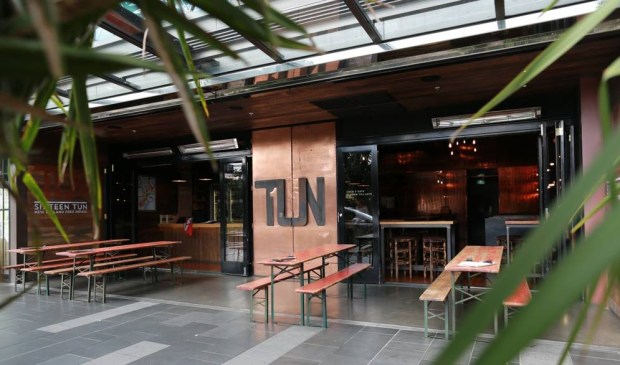By Marisa Bidois – Restaurant Association of New Zealand CEO
The recent breakdown of the Wynyard Quarter crossing bridge serves as yet another setback for hospitality businesses already grappling with significant challenges.
This critical route, now unexpectedly out of service, exacerbates the plight of local restaurants and cafes, some of which are reporting staggering customer declines of 50-80 percent.
This highlights the broader issue of how infrastructure disruptions in our CBD’s impact vital commercial activities. As cities embark on infrastructure projects aimed at long-term improvements, the immediate and severe effects on local businesses, particularly in hospitality, call for a more supportive approach from city councils.
Urban infrastructure projects, such as the City Rail Link or the planned Golden Mile upgrades in Wellington are typically conceived with the vision of long-term benefits for public transit, accessibility, and urban renewal. However, while the goals of such projects are to enhance city living and transportation, the construction phases can pose significant challenges for local businesses, especially in the hospitality sector.
The City Rail Link project, for instance, aims to transform Auckland’s public transport network. However, during its construction phase, businesses in the Central Business District (CBD) have encountered decreased foot traffic, which has subsequently impacted their sales.
The construction-related disruptions often lead to reduced accessibility, decreased attractiveness of the area, and a general avoidance of the zone by regular and potential new customers. This is particularly damaging for the hospitality industry, which relies heavily on consistent customer flow.
Given these challenges, there is a critical need for city councils to work more collaboratively with businesses impacted by infrastructure developments. Proactive measures from city councils could significantly alleviate the impact of infrastructure changes on local businesses. One effective strategy would involve councils engaging with businesses right from the early planning stages of infrastructure projects and maintaining open lines of communication throughout the construction phase. Knowing the timeline and scope of potential disruptions enables businesses to plan and adjust their strategies effectively.
Additionally, councils could provide financial relief through temporary tax breaks, grants, or subsidies. This financial support would offer businesses struggling with cash flow disruptions a much-needed buffer. Offering incentives to encourage patronage in affected areas could also help sustain business operations during challenging periods.
Marketing and promotional initiatives play a crucial role as well. By partnering with local business associations, councils can help launch campaigns that highlight that businesses remain operational despite nearby construction. Hosting events, providing promotions, and enhancing signage could dispel the notion that construction areas are inaccessible, thereby attracting customers who might otherwise avoid the area.
Improving access and signage around construction sites is another critical measure. Clear, well-placed signage directing customers to alternative routes and entrances can significantly ease the access challenges posed by construction, helping to maintain or even increase foot traffic. Temporary parking solutions or shuttle services could also be offered to mitigate the inconvenience caused by ongoing construction works.
Finally, establishing a robust feedback loop where businesses can promptly report issues and receive quick responses can dramatically improve the situation. This mechanism allows councils to address problems as they arise, preventing them from escalating and further affecting the businesses.
By putting these strategies into action, councils can do more than just soften the blow of construction for hospitality businesses; they can make it possible for these businesses to flourish, even with all the development going on around them.
Infrastructure changes are inevitable as cities grow and modernise. However, the success of these changes should not be measured solely by the completion of the projects but also by how well the city supports its local businesses through the transitional phase. By working collaboratively with affected businesses, councils can help mitigate negative impacts and foster a healthier urban economy.





